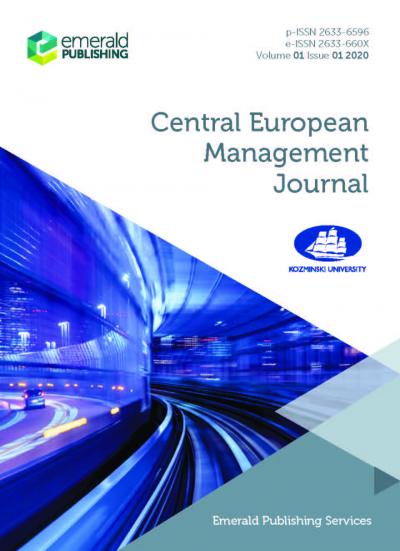Political Will, Political Skill, Network Resources and Personal Reputation: A Serial Two-Mediator Model
Orkun Demirbağ
Gumushane University

Hale Demir
Kadir Has University

Uğur Yozgat
Nisantasi University

11.2020 28 (3) Central European Management Journal
DOI 10.7206/cemj.2658-0845.26








